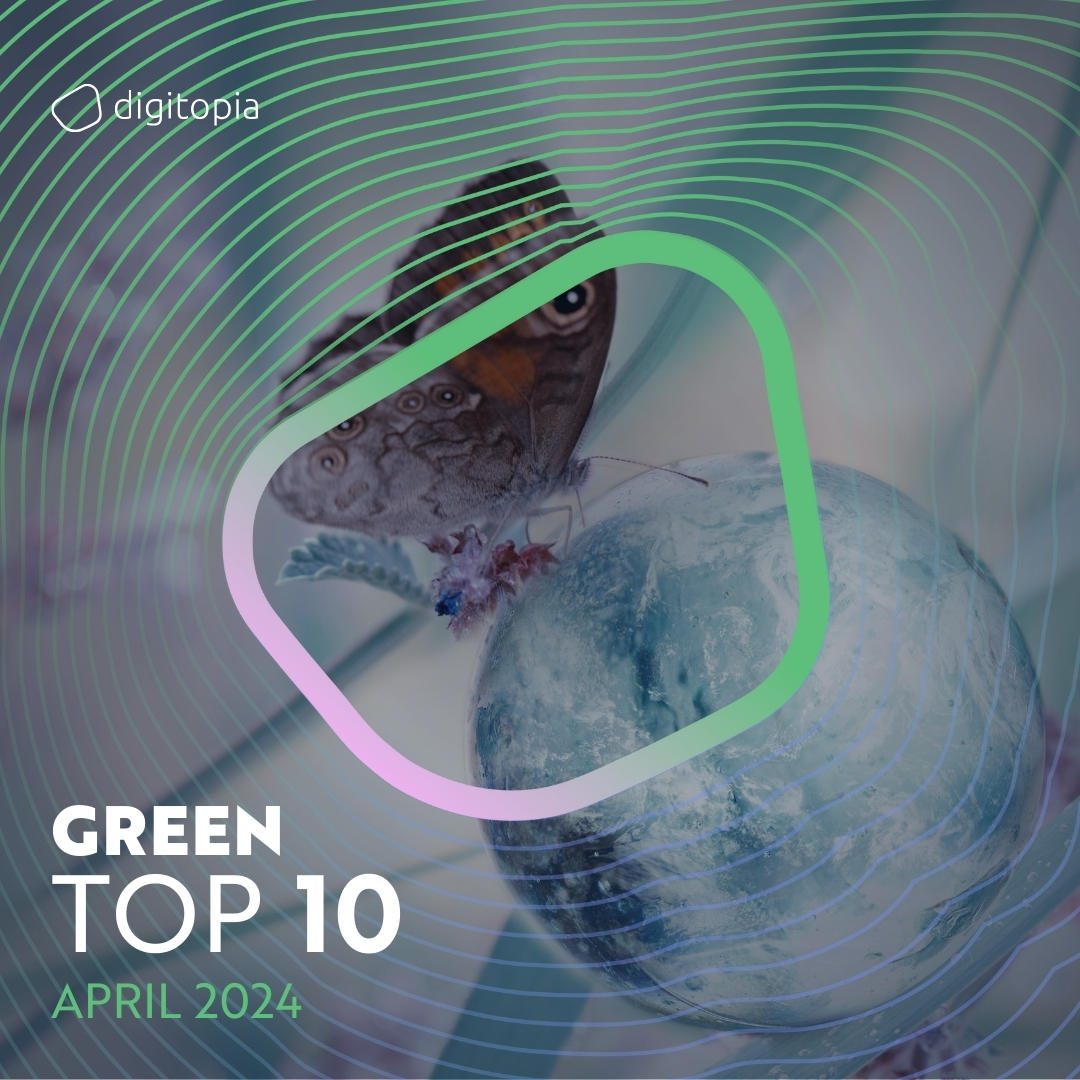
1- EU Council Approves New Industrial Emissions Rules for Enhanced Environmental Protection
The European Council has endorsed new rules to enhance the management and reduction of industrial emissions, as part of the updated Industrial Emissions Directive. This revision expands the scope to include larger livestock farms, mining, and battery manufacturing, addressing sectors responsible for significant environmental pollution. The regulations simplify compliance by mandating electronic permits by 2035 and enhancing enforcement with stringent penalties for violations. Additionally, a new emissions portal will replace the existing data register, improving public access to environmental information and facilitating participation in decision-making.
Source: European Council
2- The 2024 Sustainability Priority List
In 2024, supply chain leaders face multifaceted challenges such as economic uncertainty, labor shortages, and sustainability issues like resource scarcity and increased regulatory demands. The adoption of stringent carbon reporting regulations, notably from the SEC and within California, requires companies to prepare robust systems for transparent environmental, social, and governance (ESG) disclosures. Businesses are urged to integrate sustainability into core operations to enable real-time sustainability performance monitoring and decision-making. Amidst global supply chain disruptions, leaders are also encouraged to employ advanced data analytics and AI technologies to optimize routes and reduce carbon emissions. As organizations navigate these complexities, the strategic use of technology and adherence to new regulatory frameworks will be critical in achieving sustainability goals while maintaining operational efficiency.
Source: Forbes
3- The Power of Climate Fiction
Grist’s “Imagine 2200: Climate Fiction for Future Ancestors” short story contest showcases a collection of hope-filled narratives set in the future, where diverse visions of climate progress prevail. Selected from 1,000 submissions, the contest highlights three winners and nine finalists whose stories not only confront the daunting challenges of climate change but also provide optimistic scenarios of collective action and sustainability.
Source: Grist
4- The Twin Transition: Sustainability and Innovation in Manufacturing
Following the COP28 sustainability deal, environmental, social, and corporate governance (ESG) considerations have become crucial for organizations. Manoj Mathew from Cognizant notes that while many companies view ESG as an administrative burden, consumer demand for sustainable practices is rising, making it essential for manufacturers to integrate these practices into their business models to remain competitive. Manufacturers face challenges such as siloed information and insufficient data, which complicates decision-making for sustainability. To address these issues, companies must prioritize operational efficiency, responsible supply chain management, and develop circular business models, like reusing electric car batteries. The concept of the “Twin Transition” suggests that digital transformation and sustainability must advance together, requiring companies to leverage data and technology to optimize resource use and achieve net zero goals, ensuring they do not fall behind in an increasingly sustainable world.
Source: TheManufacturer
5- To Get to Zero-waste, Hundreds of European Cities are Spurning Incineration
In response to heightened sustainability efforts following the COP28 agreement, European cities are increasingly rejecting waste incineration in favor of zero-waste strategies. Milan, for example, has shifted from building a second incinerator to implementing a comprehensive organic waste collection service, now recovering 87% of all kitchen waste. This change is part of a broader movement across nearly 500 European municipalities working towards Zero Waste Europe (ZWE) certification. These cities are adopting measures such as waste segregation and minimizing single-use items to significantly cut greenhouse gas emissions and landfill dependency. Some cities, like Kiel and Bled, are introducing innovative waste reduction strategies, including incentivizing the use of reusable products and enhancing waste segregation among tourists and local businesses, striving for continuous improvement in waste management.
Source: Reuters
6- To Get to Zero-waste, Hundreds of European Cities are Spurning Incineration
In response to heightened sustainability efforts following the COP28 agreement, European cities are increasingly rejecting waste incineration in favor of zero-waste strategies. Milan, for example, has shifted from building a second incinerator to implementing a comprehensive organic waste collection service, now recovering 87% of all kitchen waste. This change is part of a broader movement across nearly 500 European municipalities working towards Zero Waste Europe (ZWE) certification. These cities are adopting measures such as waste segregation and minimizing single-use items to significantly cut greenhouse gas emissions and landfill dependency. Some cities, like Kiel and Bled, are introducing innovative waste reduction strategies, including incentivizing the use of reusable products and enhancing waste segregation among tourists and local businesses, striving for continuous improvement in waste management.
Source: Reuters
7- Booking.com: 48% of Americans Value Sustainable Travel, But It’s Not Their Top Priority
Booking.com’s sustainable travel research reveals that while 48% of American travelers recognize the importance of sustainability, many still prioritize other factors when planning trips. Despite a quarter of respondents being skeptical about climate change’s impact on travel, there’s a strong desire for more sustainable travel options, with travelers looking to governments and service providers for solutions. The study, involving over 31,000 people from 34 countries, suggests a need for clearer communication and credible certification to help travelers make more environmentally friendly choices. Kate Heiny from Booking Holdings highlights efforts to improve sustainable travel offerings, noting that enhancing information accessibility and partnering with accommodations are key to overcoming barriers.
Source: Environment+Energy Leader
8- World Book Day: Good Reads About Sustainability And Business Success
“The Greater Good: Social Entrepreneurship for Everyday People Who Want to Change the World” by Madeleine Shaw suggests that impactful social change is accessible to anyone, not just those with a business background. Michael Lenox and Aaron Chatterji in “Can Business Save the Earth? Innovating Our Way to Sustainability” provide a roadmap for integrating sustainable practices into businesses effectively. Gina Schaefer’s “Work Better, Save the Planet: Earth-Friendly Ways to Improve Productivity, Health, and Well-being” explores how eco-friendly office practices can enhance employee productivity and well-being. Lastly, “The Sustainability Edge: How to Drive Top-Line Growth with Triple-Bottom-Line Thinking” by Suhas Apte and Jagdish Sheth argues that prioritizing people, planet, and profit can boost a company’s growth and resilience. Each book offers unique insights into how sustainable practices can not only benefit the environment but also enhance business profitability.
Source: Forbes
9- New Government Heat Risk Tool Changes the Color of the Worst Level to Magenta
The National Weather Service and the Centers for Disease Control and Prevention have introduced a new color-coded heat warning system using magenta to signify the most severe heat conditions. This new online tool is designed to help Americans understand and prepare for extreme heat, incorporating both meteorological and medical data into a seven-day forecast. The system categorizes heat risk into five levels, with magenta representing “rare and/or long-duration extreme heat with little to no overnight relief,” posing the highest danger. This tool aims to simplify public understanding and enhance preparedness for heat waves, which are intensifying due to climate change. It’s available on both agencies’ websites and includes detailed forecasts and health advice, reflecting a proactive approach to managing heat-related risks.
Source: Fast Company
10- Artificial Intelligence Offers an Opportunity to Improve EV Batteries
Chemix, an AI-powered EV battery developer, has recently secured $20 million in Series A funding led by Ibex Investors to expand its technology aimed at designing optimized batteries for electric vehicles. The startup utilizes AI to significantly reduce the time and cost associated with battery development, which traditionally involves extensive testing. For instance, AI has enabled the prediction of battery life cycle through early testing, drastically shortening the development process.
Source: Bloomberg

